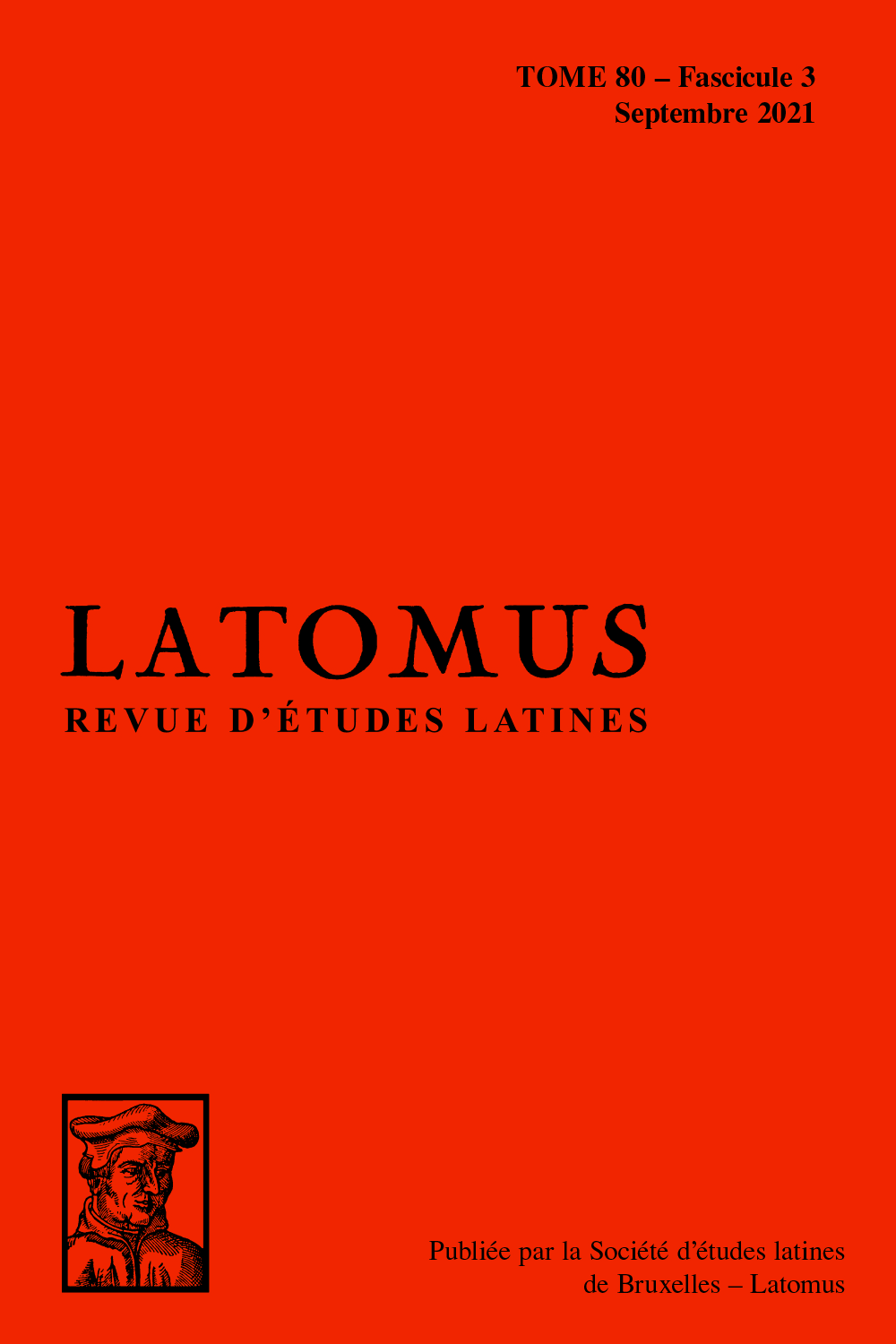 previous article in this issue previous article in this issue | next article in this issue  |

Preview first page |
Document Details : Title: Lat. disertus Revisited Author(s): NISHIMURA, Kanehiro Journal: Latomus Volume: 81 Issue: 3 Date: 2022 Pages: 591-598 DOI: 10.2143/LAT.81.3.3291217 Abstract : The etymology of Latin disertus ‘skilled in speaking’ has been disputed. Any attempt to associate it with dis-serō ‘set out in words’ fails to explain the single s- of disertus. The segmentation dis-er- with *-ar- as a former stage of -er- is thus more likely. Leumann’s theory connecting *-ar- with arcēre ‘enclose’ is problematic in terms of the historical morphology of Latin. Another theory, advocated by several scholars, is that *-ar- is related to ars ‘art’ and Greek ἀραρίσκω ‘fasten’, continuing the Proto-Indo-European verbal root *h2er-. Yet the root semantics ‘connect’ seems to be incompatible with the prefix dis- ‘apart’. To solve this conundrum, we will focus on related adverbs disertim and disertē, attested earlier than or contemporaneously with disertus. By closely examining the contexts where they appear, we will reach a better understanding of the history of dis-er- and show that the connection with *h2er- can be maintained. |
|


